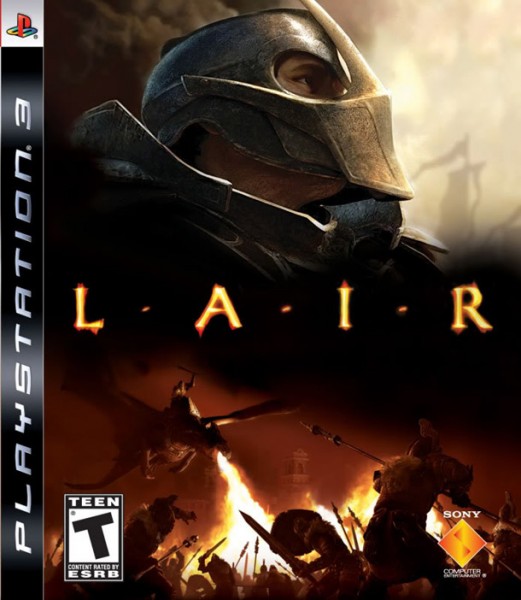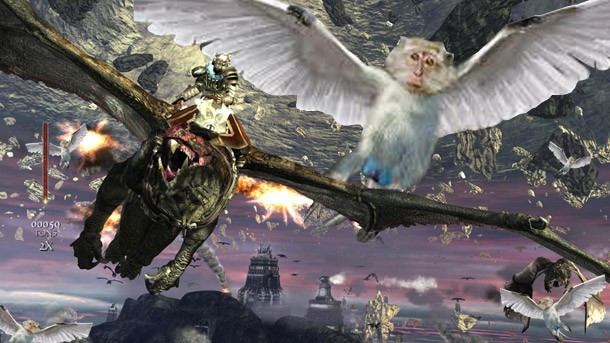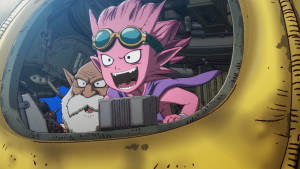Please support Game Informer. Print magazine subscriptions are less than $2 per issue
Games That Would Be Better If They Featured Monkeys

Why do games fail? You could blame it on the publishers who don’t give their studios enough time or money for the project. You could blame it on the developers who either bite off more than they can chew or practice poor management. You could even blame it on the license holders who have unrealistic demands and don’t understand how the industry really works. Whatever the case, sometime games just fail. But we have a theory for turning these disasters into successes. And that theory is monkeys. Need we say more?
Whether we’re talking about critical darlings that just don’t sell, or games that get laughed off the store shelves, there is one thing that could help any game sell better: monkeys. Let’s look at a few facts.
Fact one: Monkeys are funny and everyone loves them. It’s pretty hard to dispute this, so we’ll move on.
Fact two: Super Monkey Ball makes Sega truckloads of money. We can’t confirm this with any actually number, but Sega keeps making these games so its monkeys must be popular.
Fact three: Secret of Monkey Island. This game was so popular it got remade for Xbox Live, twice. It wasn’t even about monkeys; it became popular just because the word monkey was in the title.
Three seconds of brainstorming haven’t turned up any other games with monkeys in them, so we’ll move on.
Wait, what about Donkey Kong?
Oh well, we’ve already moved on.
Do we even need more facts? Science doesn’t look at all the evidence before it make a hypothesis, so why should we? Let’s move on and see how this theory could be put into practice.
Empirical Data Set 1: E.T. The Extra-Terrestrial
E.T. The Extra-Terrestrial came out for the Atari in 1982. It was made in like an hour and is often considered one of the worst video games of all time. It turned out to be such a disaster that Atari buried all the unsold copies in some desert somewhere. We’re sure this is true, because we read it on the Internet. Just look at the game:

Boring! But now let’s add a monkey.

Blam! We’d play that. Someone start digging up those old copies.
Empirical Data Set 2: Lair

The 2007 PlayStation 3 game Lair is about dragons. You would think that every modern male’s inner power dragon fantasy would compel them to buy this game, but the control scheme made the game practically unplayable. Let’s see what happens when we add some monkeys.

What! Flying monkeys! Even we didn’t expect that. Holy rusted metal Batman! This is amazing. When does this game come out? We have to play it.
Empirical Data Set 3: Psychonauts

Tim Schafer’s Psyconauts sure was a fun game. At least, that’s what Wikipedia says. Like you, we didn’t play it. But guess what? We would have bought the game if it looked like this:

Empirical Data Set 4: Daikatana
Are you still reading this thing? We don’t even know what we’re writing about anymore. We think we were supposed to write an article about how game ratings affect sales, but we’re locked in a dark room and no one is answering our screams, so we’re not operating at our peak.
What game are we talking about now?

Oh, Daikatana. That is the game ex-Doom developer John Romero blew so much hot air about that it almost turned into a blimp. Of course, the game sucked so hard no one bought it. But do you think people could have resisted the powered of the monkey?

Holy @#$%, that ape's got a Daikatana!
Well we’ve pretty much proved that monkeys make all games better. What else can you hope for in a day's work? We’ve got ideas for the next Too Human as well; someone get Silicon Knights on the phone!










